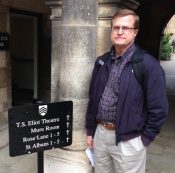by Glynn Young @gyoung9751
It’s been more than two years since the writing began. It’s been more than four since the research started. A little over a month ago, on Jan. 16, I wrote this in my writing journal: “Reached 87,758 words. First draft completed.” Five days later, I wrote “First reread / editing completed.”
It was there I stopped, almost mentally and emotionally spent. I need to do the second edit, which for me is the most serious one. But I stopped, to catch my breath, reflect and take stock, and consider how the past two years of my life have been devoted to a story that is about 25 percent true and 75 percent fiction. Nd what I thought was mostly true mostly wasn’t.
I’ve published five novels and a non-fiction book. I’ve completed two novel manuscripts that have potential but need considerable reworking. I have at least five different novel ideas, and a dozen short stories, buzzing around my head.
This story I just finished, this manuscript I’ve labored over, isn’t exactly a labor of love. It’s more a labor of sweat, the story I had to get done.
The story idea began as a memory more than 50 years ago. My father made an offhand remark about his grandfather, whom he barely remembered (he’d died when my father was 4). He said that his grandfather had been too young to enlist as a soldier in the Civil War, but that he had joined as a messenger boy. When the war was over, he was left stranded somewhere in the east, Virginia or North Carolina, and he had to make his way home to Mississippi on foot. When he arrived months after the war ended, he discovered his family was gone, having fled somewhere west to east Texas. My great-grandfather’s journey had continued, until he finally found them. They eventually returned to Mississippi.
What a story it was! And it stayed with me. One day, I’d told myself, I will write this story. I would find out what it would have been like to walk more than 700 miles across a society devastated by war and a landscape often destroyed.
Life intervened. My writing went in other directions for decades. But I eventually found my way back to this memory.
The research started two years before the writing. So much has been written about the Civil War that I soon found myself drowning in research.
I learned to be ruthless and narrowed my research. A story may work better when you know a lot about a little. Too much research leads to paralysis.
What Happens When You Finally Type “The End”? Click To TweetAnd I learned not to trust family stories, including my father’s memory. Yes, my great-grandfather may have been a messenger boy, but that title wasn’t a military one. Instead, it belonged to the young boys who delivered telegrams to families, often describing the death in battle of a loved one.
My great-grandfather wasn’t too young to join up. In fact, when the war began, he was exactly the age to be conscripted. And he didn’t fight in the east but in the western theater of the war. When the war ended, he was in Texas, not far from where his family was living. Anyone who might have first-hand or even second-hand knowledge of whether the rest of his story, like the long trek home, was true or not was long dead. By then I’d become a skeptic.
I discovered most of this when most of the writing was done. But I stuck with the story, or at least a story, anyway. I accepted the fact that my great-grandfather had lived a story that was not the story I’d spent so much time on.
With the story drafted, and the first edit done, I’ve given myself permission to stop and rest, before what will be my hardest task – the second edit. I need a little distance from this consuming manuscript. My research has turned from histories, biographies, cultural studies, and memoirs to reading how others wrote novels, stories, and poems about the war for both adults and children.
I’m pleased with where I am; it’s always better to be nearer the end than the beginning, even if the toughest battle is just ahead. But I taught myself that’s it’s okay, and maybe necessary, to stop and rest after typing “The End.”
 Glynn Young is a national award-winning speechwriter, communications practitioner, and novelist. He’s the author of five published novels, Dancing Priest, A Light Shining, Dancing King, Dancing Prophet; and Dancing Prince; and the non-fiction book Poetry at Work. Visit Glynn on Facebook, LinkedIn, Pinterest, his blog, the Dancing Priest book page, and his business web site.
Glynn Young is a national award-winning speechwriter, communications practitioner, and novelist. He’s the author of five published novels, Dancing Priest, A Light Shining, Dancing King, Dancing Prophet; and Dancing Prince; and the non-fiction book Poetry at Work. Visit Glynn on Facebook, LinkedIn, Pinterest, his blog, the Dancing Priest book page, and his business web site.

Comments 2
Spoken like a true writer, Glynn! When a manuscript comes to a close, I often feel relieved but sad too. Between projects is almost like jolting to a stop and catching my breath while waiting for direction. May God guide us and all the poets and writers floating aroud in that waiting space.
My head is already racing into the next story, and it has no connection to this one. I had to stop myself from starting to think through a sequel, because it was getting jumbled with the next story.